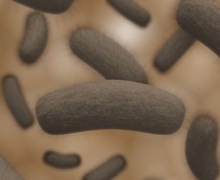
A new study from researchers at Case Western University shows how antibiotics can actually do more harm than good by destroying good bacteria that would normally attack an oral infection and reduce inflammation.
While most are in favor of antibiotics in the case of severe infections, the overuse of antibiotics is more in focus recently because the ability to kill bacteria indiscriminately has been shown to cause some unwanted consequences. Antibiotic resistance is a concern and the results of this study show how it can also delay the healing process in some instances.
Pushpa Pandiyan, assistant professor of biological sciences in the School of Dental Medicine at Case Western, and her team had their work published recently in Frontiers in Microbiology. They wanted to determine how certain common oral bacteria combat infections in the mouth. They focused on the ability of Tregs and Th-17 cells to fight fungal infections like Candida in a laboratory setting.
"We set out to find out what happens when you don't have bacteria to fight a fungal infection," Pandiyan said. "What we found was that antibiotics can kill short-chain fatty acids produced by body's own good bacteria. We have good bacteria doing good work every day, why kill them? As is the case with many infections, if you leave them alone, they will leave on their own.”
Pandiyan also said, "Of course, antibiotics are still needed for life threatening infections. No question about that. Our bodies have many natural defenses that we shouldn't meddle with. “However, needless overuse of antibiotics is not helpful. Also, we know there is a definite link between oral health and overall health."
Pandiyan believes this concept of antibiotic overuse could have implications in other areas of the body where resident bacteria is known to fight other types of infections. She is currently working on a research project for the National Institutes of Health examining HIV patients who have developed oral health problems as a result of weakened immune systems.
Click here to read more in Frontiers in Microbiology.
